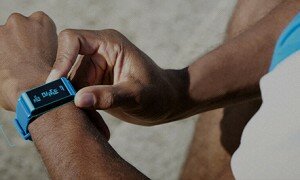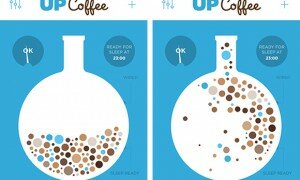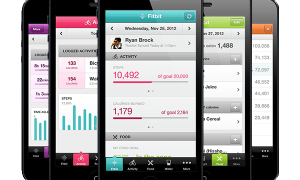When the Basis Band was first officially released in 2013, it met with overwhelming orders. Being one of the enthusiasts, i signed up and when my chance to purchase came, i passed. A year is a long time in wearable tech and during that period, many worthy contenders entered the ring. Yet the Basis Band was at the back of my mind all the time. Personally, i thought the Basis Band wasn’t for the masses. Rather than call it a fitness tracker, it would be more fitting to call it a lifestyle tracker.
The Basis Band B1.
The good guys at Basis knocked $30 off the retail price during Christmas and i went for it. Shortly after, Body IQ arrived and most recently, advanced sleep analysis. Would i consider this a tracker past its prime or would it be one that has yet to reach its full potential? Read on for the review.
ACCURACY
Putting the Basis Band through a series of tests i figured would closely simulate activities of daily living. I would walk, jog and run on the treadmill for 5 minutes at each speed; most people i know of would engage in either of these activities in a day. Actual steps were recorded with a pace counter. An additional test for step accuracy was devised for wrist trackers where I would carried a laptop and walked for 5 minutes at 5km/hr.
Very impressive. You have to bear in mind that this is a controlled test condition and tracking from activities of daily living may be off somewhat.
HOW’S IT LOOK?
Basis Band is first and foremost a watch.
Various function clockwise from top left: Calories, Date, Heart Rate, Step Count.
View from front and back when worn.
L to R: The charging pins and the sole button that activates the Bluetooth functions.
Organic. Imagine a squarish looking watch with digital display and you aren’t far off. The Basis B1 comes in black or white with additional designer straps you can purchase from Basis. The watch face has only 4 metal nodes which toggles the display. There’s another button at the side of the watch that serves to enable, dis-able Bluetooth or sync. Although not touch-screen enabled, i found the metal nodes more than adequate in terms of control and sensitivity.
Optical blood flow, Skin temperature, Perspiration sensors.
The back of the watch houses an Optical Blood Flow sensor, perspiration and skin temperature sensors as well. Yep, you heard me right. The unit is a tad thick for my liking. After a month or so, I’ve gotten used to it. The watch strap is designed in such a way it pushes the heart rate (HR) sensor unto your wrist to ensure contact with the detectors which in turn trigger the HR reading function. There is mild discomfort which may take a while to get used to.
Watch screen resolution. Can be difficult to read on a bright day. Touching the metal nodes on the watch face triggers back-lighting which may help somewhat.
The Basis Band charges via a proprietary USB cable. The short battery life also means i have to remember to bring the USB charger with me should i go somewhere for a few days.
ACCESSIBILITY OF DATA
This is where the fun begins. There is literally an abundance of data. So much so the unprepared can feel overwhelmed.
Insights panel which shows all your activity for the day. Clicking on each panel will reveal more information.
Upon expanding, you’ll see clearly at which the day you managed to hit your habit goals.
While the mobile apps presents a summary of the data, personally i found it more convenient to log into the website to access my tracked stats where i could see all the graphs and charts i need. I stress again that this can overwhelm the typical fitness tracking guy who’s looking to receive encouragement from friends and all. (No such luck here)
An example of the step count tracking pattern for the day. Generally, i’m pretty low in activity from 11pm till 5am. The hustle and bustle starts from 6am except on weekends.
The Basis Band syncs with both iPhone and Android phones so you’re safe whichever side of the fence you’re sitting on. No such luck for the Windows platform supporters. Syncing can also be initiated from the USB connector that also doubles up as a charger. It’s proprietary.
ANYTHING ELSE?
Every time you fulfill a certain task, you’ll earn points that go towards unlocking new habits. For example, my first task was to wear the Basis Band for 12 hours a day. Done. I earn certain points which went to unlocking my second habit which may be revving up my step count to 10k daily. By building on the good habits, you’ll earn more and more points. similarly,the number of points to unlock new habits also increase. I’m presently at 6 habits and am en route to unlocking the seventh.
Some of the habits I’ve unlocked.
Besides Mio Alpha, Basis is the only company that effectively fit a heart rate monitor (HRM) into the Basis Band. The Optical Blood Flow sensor tracks your heart rate pattern throughout the day. In the bigger scheme of things, the Basis B1 does show the trend of my HR throughout the day. The detail can’t be compared to a specialised HRM. If you’re doing HR zone training, you’re probably better off investing in specialised HRMs.
Personally, i found the tracking of my resting HR during sleep the most informative and the tracking of HR during exercise summative at best. I’ve also experienced bouts of dropped HR tracking during the day and the plots look pathetic. Perhaps wearing the band really tightly might allow a better fit and contact with the wrist, thus allowing more accurate capturing of the HR.
HR pattern throughout the day. The white slots are either dropped tracking or when i’m charging the Basis Band.
Body IQ recognises when you start on various activities like walk, run, bike or sleep. I was skeptical initially but seeing how it works, i’m sold. I’ve gone on runs and walks to see the duration reflected accurately on the face of the watch. Upon syncing, you’ll be able to see your day’s activities under the “Insights” panel.
Sleep tend to be captured with good accuracy as well and I’m not talking about the quality of sleep but the duration. There were times when an eight hour sleep would be broken up into two sessions of sleep though the total duration still totals eight hours. You have to remember that there’s no button to press to activate monitoring. Everything is based on the Basis Band sensing your activity for the moment.
Data galore! Body IQ senses my movement by adding the walking man icon at those times i walked.
The perspiration monitor tracks your sweat level. I found it interesting that i perspire the most during my sleep. I reside in Southeast Asia where temperature an humidity are both high. It’s also not a habit of mine to sleep with the air conditioner on; i’m more of a fan guy. So the bit of information about high sweat level during sleep had me thinking about the causes and maybe even web-md some inherent genetic condition i may have. Ah the beauty of health trackers.
Perspiration tracking pattern.
Skin temperature sensors, which takes up four of the six nodes at the back of the watch, tracks your temperature patterns throughout the day. And again my skin temperature is the highest in my sleep. More than when i’m going about my daily activities. I’m assuming having my hands under the blanket is not helping the readings but it made me aware of what goes on during my sleep and what i can do to improve the quality of sleep.
Skin temperature pattern throughout the day. It’s apparent i clock the highest temperature during sleep.
Calories expenditure pattern. Needless to say, the least calories were expended during sleep and rest.
Advanced sleep monitoring was released in Jan 2014 and developed with researchers from the University of California, San Francisco (UCSF), Veterans Administration (VA) and the Northern California Institute of Research and Education (NCIRE). I like my gadgets With AIA, you now get the breakdown of your sleep in terms of light, deep, REM and you’ll also get a sleep score of 1-100. On average it was clear to me that i sleep much better on weekends than on weekdays which i attribute to my line of work where i have to wake up very early and sleep on average 5-6 hours. Weekends are more indulgent for me where i have the luxury of lying in bed till i feel like waking up. I’m not the authority on sleep quality with regard to the Basis but physically my feeling better on weekends does coincide with the higher sleep scores.
Advanced Sleep Analysis.
IN A NUTSHELL
Pros:
- Accurate step count
- Calories tracking
- Auto detection of activity commencement (Body IQ)
- Advanced Sleep Analysis
- Heart rate pattern
- Perspiration sensor
- Skin temperature sensor
- Watch and date functions
- Water resistant
- Syncs with both Android and iOS mobile phones with Bluetooth
- Very detailed tracked stats
Cons:
- Mediocre battery life span (~4 days)
- Lack of vibration/ sound
- Proprietary charging cable
- Lack of data summary or health tips.
- Could fit better
List price: Basis Band has been replaced by an updated Carbon Steel 2014 edition priced at $199.
You might be interested in:
- Polar Loop review
- Jawbone UP review
- Jawbone UP24 review
- Misfit Shine review
- Garmin Vivofit review
- Nike+ Fuelband SE review
- Sony Core Smartband SWR10
The Basis Band is probably the most advanced lifestyle tracker you can buy off the market now. Let’s not forget it’s been on sale for more than year. Recent updates like Body IQ and Advanced Sleep Analysis practically puts it in the MENSA-sphere; way ahead of other fitness trackers. Here’s probably why the Basis Band may not appeal to many, it’s too smart. You’ll be rewarded if you pay attention to the tracked data and try to make sense of the patterns and perhaps link it to some activities in your life. That sounds like a lot doesn’t it? Otherwise you’d be overwhelmed.
The feature that blew me away is probably the Body IQ. It’s simply amazing how the Basis Band knew when i’m walking, running or even sleeping without requiring any pressing of buttons on my part. It’s nice to know that i walked 20 times a day and ran 25 minutes. However when all this data is tracked, it makes little sense to me if there’s no summary. It would have been great if there was a weekly summary rather than daily updates on what habits I’ve hit; think Jawbone UP trends and even the Fitbit weekly summary.
The Basis Band is way ahead of its time. Perhaps if it had followed its competitors in terms of data presentation or aesthetics, it might appeal to more people who are keen to improve their health through fitness tracking but don’t have the time to comb through all the data.
Basis has since been bought over by Intel in 2014.









